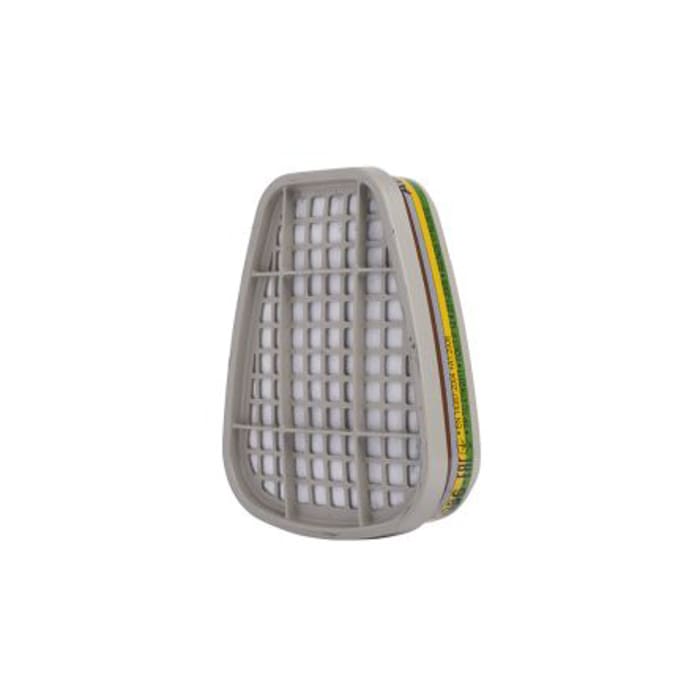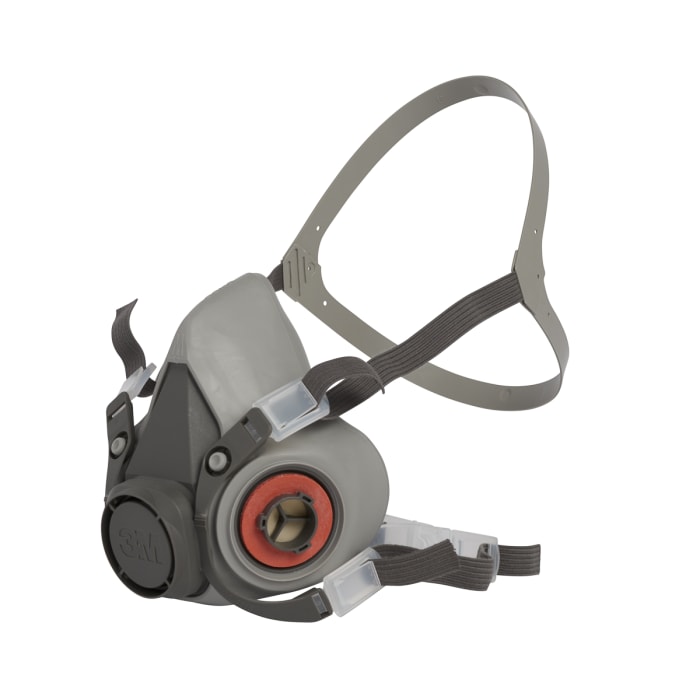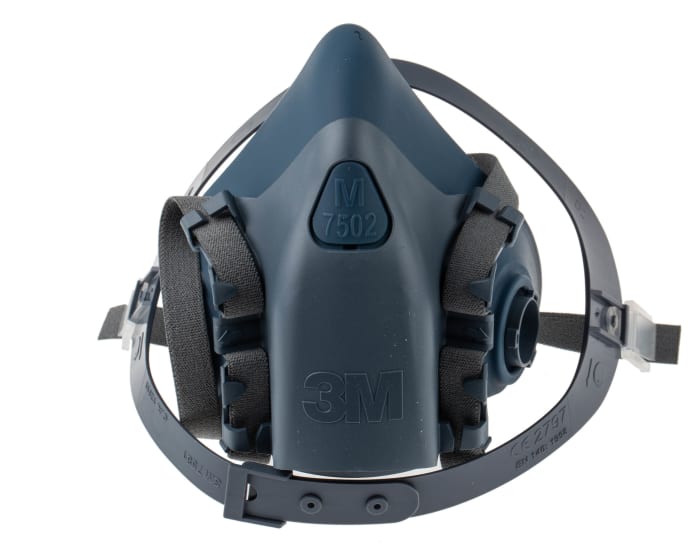Technical documents
Specifications
Brand
3MFilter Type
Ammonia, Gas, Particulates, Vapour
For Use With
6000 Series Full Face Mask, 7000 Series Full Face Mask
Country of Origin
United States
Product details
6000 Series Gas & Vapour ABEK2 Filters
These 3M™ 6000 Series Gas and Vapour Filters are the 6099 Class ABEK2 (P3R) filters designed specifically for organic vapours, inorganic and acid gases, and ammonia derivatives and particulates. These gas and vapour filters employ a counter-balanced, streamlined design to minimise the feeling of weight and therefore improve comfort. The positioning of the filters ensures an excellent field of vision.
Features and Benefits
• Excellent protection against organic vapours
• Improved comfort
• Allows for excellent field of vision
Applications
• Vehicle manufacture
• Aircraft manufacture and repair/refurbishment
• Refrigeration equipment manufacture and maintenance
• During manufacture and use of inks, dyes, adhesives, resins, varnishes and paints
• Whilst spraying and handling agrochemicals
• Electrolytic processes
• Particulate applications
• Acid Cleaning
• Metal Pickling
• Metal Etching
Filter Types
Filtered respirator facemasks are essential PPE for environments where particle ingress can be potentially hazardous to your health, such as gas, vapours or dust. They are often more suitable for heavy-duty tasks than disposable facemasks. Replaceable respirator particulate filters are graded in different ways to indicate their suitability for different applications, such as;
• A- Organic vapours with a boiling point more than 65°C
• B- Inorganic vapours
• E- Acid gases
• K- Ammonia and ammonia derivatives
• AX- Organic vapours with a boiling point less than 65°C
Half-mask or full-mask respirators?
Depending on the health and safety requirements of your workplace or the demands of your application, you may need to choose between a half mask or full mask respiratory. Half mask respirators cover only the nose and mouth, while full masks cover the entire face. While both masks may have the same grade of filter, a full face mask has the benefit of sealing around the whole face, creating a more secure seal. Full face masks also have the advantage of protecting the eyes from vapours or splashing. As such, the full face mask option is often a better choice for potentially more hazardous conditions.
However, a half-mask might be a more cost-effective option if extra protection isn't needed, or might be more suitable for use in combination with specialized headgear.
Correct use of respirators
When it comes to respiratory protection, the correct fitting and testing of your respirator is just as important as selecting the correct respiratory protective equipment for your working conditions. Be sure to follow all pertinent instructions and that health and safety best practice is adhered to at all times. Always be sure to use the correct filters for your environment, and make sure the replacement filters are changed as regularly as is recommended.
Standards
EN14387:2004 +A1:2008

P.O.A.
1
P.O.A.
Stock information temporarily unavailable.
1
Stock information temporarily unavailable.

Technical documents
Specifications
Brand
3MFilter Type
Ammonia, Gas, Particulates, Vapour
For Use With
6000 Series Full Face Mask, 7000 Series Full Face Mask
Country of Origin
United States
Product details
6000 Series Gas & Vapour ABEK2 Filters
These 3M™ 6000 Series Gas and Vapour Filters are the 6099 Class ABEK2 (P3R) filters designed specifically for organic vapours, inorganic and acid gases, and ammonia derivatives and particulates. These gas and vapour filters employ a counter-balanced, streamlined design to minimise the feeling of weight and therefore improve comfort. The positioning of the filters ensures an excellent field of vision.
Features and Benefits
• Excellent protection against organic vapours
• Improved comfort
• Allows for excellent field of vision
Applications
• Vehicle manufacture
• Aircraft manufacture and repair/refurbishment
• Refrigeration equipment manufacture and maintenance
• During manufacture and use of inks, dyes, adhesives, resins, varnishes and paints
• Whilst spraying and handling agrochemicals
• Electrolytic processes
• Particulate applications
• Acid Cleaning
• Metal Pickling
• Metal Etching
Filter Types
Filtered respirator facemasks are essential PPE for environments where particle ingress can be potentially hazardous to your health, such as gas, vapours or dust. They are often more suitable for heavy-duty tasks than disposable facemasks. Replaceable respirator particulate filters are graded in different ways to indicate their suitability for different applications, such as;
• A- Organic vapours with a boiling point more than 65°C
• B- Inorganic vapours
• E- Acid gases
• K- Ammonia and ammonia derivatives
• AX- Organic vapours with a boiling point less than 65°C
Half-mask or full-mask respirators?
Depending on the health and safety requirements of your workplace or the demands of your application, you may need to choose between a half mask or full mask respiratory. Half mask respirators cover only the nose and mouth, while full masks cover the entire face. While both masks may have the same grade of filter, a full face mask has the benefit of sealing around the whole face, creating a more secure seal. Full face masks also have the advantage of protecting the eyes from vapours or splashing. As such, the full face mask option is often a better choice for potentially more hazardous conditions.
However, a half-mask might be a more cost-effective option if extra protection isn't needed, or might be more suitable for use in combination with specialized headgear.
Correct use of respirators
When it comes to respiratory protection, the correct fitting and testing of your respirator is just as important as selecting the correct respiratory protective equipment for your working conditions. Be sure to follow all pertinent instructions and that health and safety best practice is adhered to at all times. Always be sure to use the correct filters for your environment, and make sure the replacement filters are changed as regularly as is recommended.
Standards
EN14387:2004 +A1:2008




